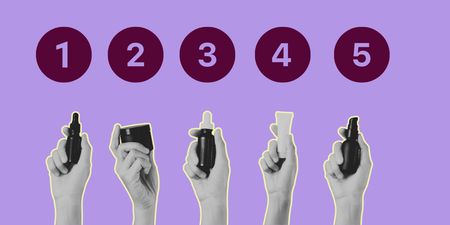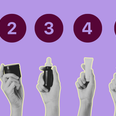It is being pushed by a dating app.
While cyberflashing can have a lot of consequences, it is not illegal in most places but in the UK that could soon be changing.
Cyberflashing is the act of a person being sent unsolicited sexual images on their phone by a stranger through AirDrop, which can only be done between iPhones.
Victims of this are often targetted on public transport due to the short-range and have left many fearing the idea of using public transport again.
Dating app Bumble has now launched a campaign to stop this from happening and make it a criminal offence to commit cyberflashing.

The campaign, #DigitalFlashingIsFlashing, is pushing for this to be criminalised in the UK.
“Cyberflashing is a pervasive problem, experienced disproportionately by women. Research from data analytics firm YouGov shows that four in 10 millennial women (41%) have been sent an unsolicited photo of a man’s genitals (dick pics, colloquially) without consent,” the company wrote in a blog post.
“Bumble’s own research suggests this figure could be even higher, with nearly half (48%) of those aged 18 to 24 receiving a sexual photo they didn’t ask for in the last year alone.”
“We’ll be working alongside politicians, organisations, and members of the public—including you, our Bumble community—to call on the U.K. Government to enact a law that makes the unsolicited sending of nude images illegal. If flashing wouldn’t fly on the street—or at the office, or in the classroom—it shouldn’t be tolerated in your inbox.”

Bumble also said that they will be organising cross-party Parliamentary consultations alongside UN Women to gain support from MPs.
Whitney Wolfe Herd, Founder and CEO of Bumble told Metro: “Now more than ever, we spend a considerable amount of our lives online and yet we have fallen short of protecting women in online spaces.
“Cyberflashing is a relentless, everyday form of harassment that causes victims, predominantly women, to feel distressed, violated, and vulnerable on the internet as a whole. It’s shocking that in this day and age we don’t have laws that hold people to account for this.”
These calls are not a new thing, with the Law Commission publishing a report showing the harm that cyberflashing can cause and for it to be made illegal.

















































